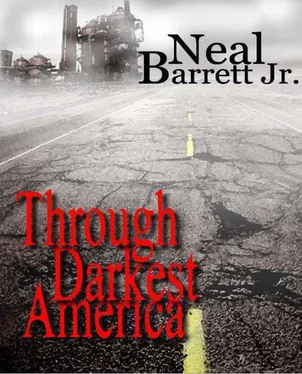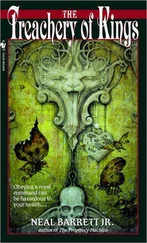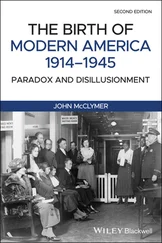This year, though, horses were scarcer than ever—even the tired work animals that would have pulled the wagons had been pressed into service as mounts for soldiers fighting in the west. The wagons were lighter than usual, then, and pulled by reserve troopers who clearly didn’t like this kind of duty. They cursed and grumbled that they hadn’t signed up to pull wagons over bad roads, and said it surely wasn’t the proper thing for soldiers to do.
Papa chuckled when he saw them. “Serves ’em right’s what I say. Let them fellows in Jefferson see how the other half lives.” A few men standing about nodded and laughed with him, but Howie’s mother laid a hand on his arm and said someone might hear. Papa just grinned and told her that didn’t matter to him one way or the other.
Horses were always good for a joke. As long as anyone could remember, the government had been saying it wouldn’t be too long before there’d be enough of the big animals so every farm and ranch could have at least one— that breeding was going well, and more and more horses were coming up from Mexico every month.
Nobody believed that, though, and a day didn’t pass during planting season when one neighbor didn’t tell another that he shouldn’t be pulling his own plow—that there’d be horses to do that anytime now.
As soon as he finished helping Papa put up their own shelter, Howie ran across the road to see the pictures. Bluevale was a long time back and he hadn’t forgotten it was the one thing they’d missed at the fair. Besides, it was a good time to stay away from everyone. His mother had been crying again. It made him feel awful to see that—though he was old enough now to understand why. Choosing was a good thing and helped everybody, but like Papa said, mothers had different kinds of feelings than other people. So did fathers, Howie decided. They didn’t show it as much, but he’d caught a certain look in Papa’s eyes.
There were already some people in the tent, but not so many you couldn’t see what you wanted to—and Howie wanted to see everything. There were drawings and colored posters and even photographs—pictures where everything looked as real as if you were there.
Silver Island, he decided, must be an awful lot like Heaven, Nobody knew what Heaven looked like, of course, unless they’d died—but he couldn’t see how God could come up with anything much better. There were big white houses under broad trees. Every window had glass and curtains and the houses came right down to bright blue water. A smooth, sandy beach circled the island and waves rolled in from the sea and left sparkling foam on the shore. Sails colored green, yellow, and cherry red dotted the bay.
It was all truly a wonder. And the biggest wonder of all was that it never got cold on Silver Island. It was always kind of like spring or summer, only better. No snow or ice, and no wood to chop. You didn’t freeze your hands and toes until you couldn’t even tell if they were there. Now that was something.
The people, of course, were what everyone really came to see. There were pictures of people from all over the country—people from close by and as far away as California. And it was hard to imagine they’d ever lived anywhere but Silver Island. They didn’t look like people you knew. Everyone was smiling. No one was tired or worried or anything. Well, why should they be? Howie asked himself. That’s what Silver Island was for. If you went there, you didn’t have to worry. You had a good life and plenty to eat and you never got cold. He reckoned he’d smile a lot, too.
One picture held Howie’s attention a long time. It showed a group of boys and girls on a beach. They were tossing a ball back and forth and laughing. Behind them was a sailboat on a blue-green sea.
As far as Howie was concerned, though, there was no one else in the picture but the girl. She lazed on the beach, away from the others, her eyes closed against the sun. She didn’t have hardly any clothes on at all and her skin was tanned the color of raw honey. You could see almost all of her breasts and her legs were long and shiny. He didn’t know anyone looked like that—not anywhere!
Howie felt his heart beating against his shirt. Something else was happening, too, and he decided he’d better get out of the tent and back across the road. He looked over his shoulder to see if anyone was watching, but nobody was.
“Will the clown be scary, Mama?” Carolee wanted to know.
Howie’s mother started to answer, but Papa grinned and squeezed her shoulder. “Honey, ’course he won’t be scary. Clowns are supposed to be funny , now aren’t they? Isn’t that right, Ev?”
“Yes, of course they are. Papa’s right, darling.” She gave Carolee a quick smile, then turned her around again and ran the long brush through her hair.
“Ow!” Carolee pulled away. Her mother reached out and settled her back.
“You got to look nice, honey.”
“Am I gonna have to go, Mama?”
“You might not, Carolee. We don’t know that at all. They don’t choose everyone. Just some.”
“If I go, will you and Papa come see me?”
“Carolee.” Her mother’s lips pressed together in a narrow white line. Howie saw her eyes begin to glisten and his stomach knotted up inside.
“Carolee,” she said gently, “no one even knows if you’re goin’ anywhere. Now do they?” She forced a little laugh. “Just hush- up and let me do your hair, hon.”
“Will Howie go with me?” Carolee let out a deep sigh. “I never get to go anywhere without Howie. I’m closer to thirteen than I am twelve and that’s old enough to do stuff by yourself. Mayellen got to go into Callister with the Martins and they aren’t even kin !”
“Be still, Carolee.”
“But Mama . .”
Howie saw something move in his father’s face. Papa’s big frame seemed to get suddenly smaller and, in a minute, he turned and tramped quickly out of the tent. Howie watched, curiously, and started to follow. His mother caught his eye and she shook her head ever so slightly. Howie sat down and busied himself with his studies, though he couldn’t keep his mind on any of the words.
The clown was funny.
He came hobbling drunkenly into the big tent, taking quick little steps, arms tight against his sides. Then, suddenly, he tripped over his feet and went sprawling. All the children laughed and most of the grownups.
Parents stood in a big circle, their children cross-legged before them. They’d already heard the speech from the chubby little government man out of Jefferson. He was clearly a man who’d never done anything but town work and they’d all heard the speech before. It was the same every year. How all the parents should be proud to have such fine children—he was certain there wasn’t a better looking group of youngsters anywhere. That was no surprise, he said, because there wasn’t a heartier looking bunch of men—or prettier women—anywhere in the country.
He told them again what they all knew: That children chosen to go to Silver Island were the luckiest children in the world and that their parents should be more than proud. Silver Island was the beginning of a new America and someday the whole country would be just like that. Because that’s what Silver Island was for—to provide citizens to make that new America, to give them advantages they couldn’t hope to get anywhere else.
It was, he realized, always sad to see a child leave home. He explained, however, that children chosen here and all over the country wouldn’t really be gone at all. They’d be the representatives of their parents in a new world of tomorrow. It was a shame that the whole country—children and grownups alike—couldn’t enjoy all the advantages of Silver Island right now. But the government believed it had the duty and obligation to do what it could—if not for the many, then for the few. And before long, those few would swell to many again.
Читать дальше












